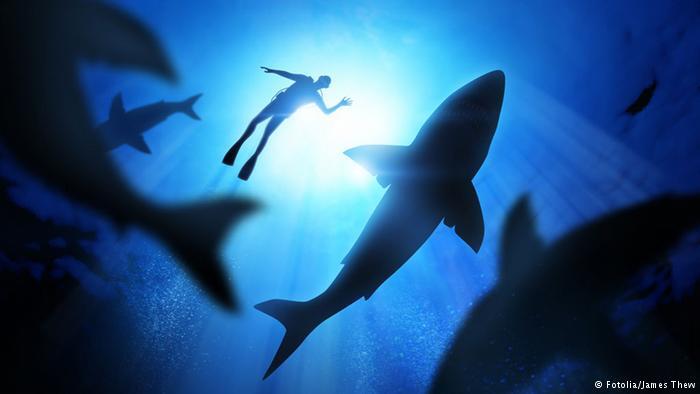Scientists at the Florida International University have started an ambitious project called Global FinPrint. The project’s goal is to measure the number of sharks and rays in the oceans and to understand their influence on the ecosystem of the world’s coral reefs. Shark experts Mike Heithaus and Demian Chapman are using a somewhat unusual method to get the information they are looking for. They will use bait attached to 400 underwater cameras to attract and monitor the animals. “We are trying to determine what features of a coral reef influence how many sharks and rays live on it or visit it”, Chapman said. “These factors include whether not it is a marine protected area, how many fish live on it, how healthy its corals are and many others.” He says that will help them to identify hotspots where sharks and rays are still common, as well as to predict where hotspots are most likely to be. The cameras will be placed in reefs where little is known about the species populations – such as those in the Indo-Pacific, the tropical western Atlantic, those off southern and eastern Africa and around the Indian Ocean islands. Heitman and Chapman say the results might be available by 2018. What if the sharks disappear? They hope the experiment will help give a clearer picture about how the animals influence life in the coral reefs. “Many don’t realize that people need sharks,” Heithaus said, adding they play a key role in the food chain. In seagrass beds for example, they determine the balance of species by eating turtles and manatees. If they didn’t do that, the species would multiply freely and eat too much seaweed. That in turn would limit the habitat of various other fish and crab species, which would ultimately affect humans. To be able to survey as many reefs as possible Chapman and Heithaus plan to raise the project’s financing by two crowdfunding campaigns. One aims to generate funds for further research, Heithaus explains, and the other is designed to generate awareness among students. The marine researchers plan to produce educational videos “to inspire and educate students in school settings.” With as many as a hundred million sharks killed worldwide annually, many shark populations are deemed to be at risk. https://youtu.be/d05fiWVumyE











